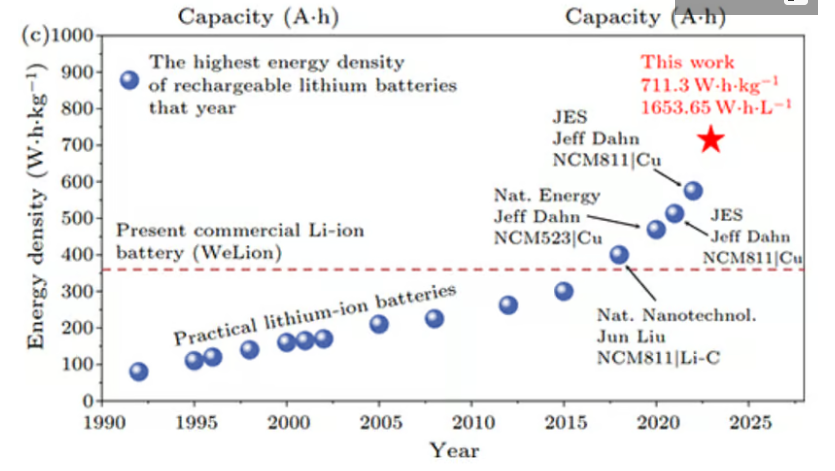
The current cells, frankly, are good enough for most electric car use cases. But in other areas – such as high-powered mobile devices, high-performance electric motorcycles, and above all, electric aircraft and eVTOLs – manufacturers are crying out for batteries that can pack more energy into significantly less weight.
There are some pretty impressive new cells beginning to trickle onto the market – CATL's 500 Wh/kg "condensed battery," for one. But in terms of single-purpose cells designed purely to max out specific energy, the previous highest figure ever reported was a 575 Wh/kg anode-free pouch cell tested by Dalhousie University professor Jeff Dahn and his team.
This has now been smashed by a team from the Institute of Physics at the Chinese Academy of Sciences. A small team developed a rechargeable 10-Ah pouch cell using an ultra-thin lithium metal anode, and a lithium-rich, manganese oxide-based cathode.
The team expanded the charge/discharge voltage range, and studied the structural stability of the cathode, as well as how modifications to the surface of the lithium anode affected the way in which lithium ions deposit onto the electrode and dissolve away from it as the battery charges and discharges.
The battery tested at 711.3 Wh/kg, and it also offered an exceptional volumetric energy density of 1,653.65 Wh/liter.
Naturally, it's just a research-grade lab cell, and a long way off any form of commercialization. Building this prototype required "extremely advanced process technologies such as high-loading electrode preparation and lean electrolyte injection," so they'd likely be very expensive.